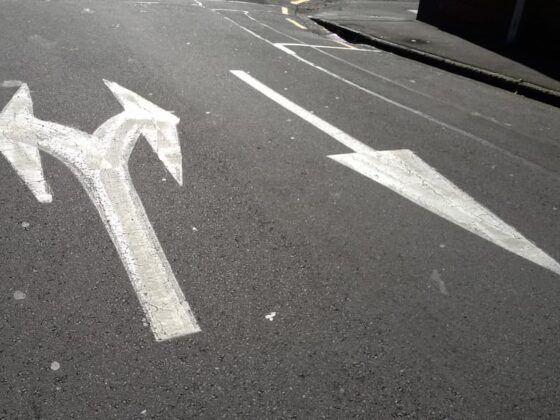Healthcare workers around the globe are the front line of the current coronavirus emergency response. Everyone is grateful for the tireless efforts of all healthcare workers, but what actions can you take when medical negligence causes you or a loved one to be infected with COVID-19, or worse?
What is Medical Negligence?
In our article “Medical Malpractice: Negligence Towards Cancer Patients”, we detailed the general meaning of medical negligence:
“Medical negligence is when the care provided to a patient falls below the accepted standards of medical practice, due to an act or omission from the medical professional. As a result, death or injury must have occurred. The level of competency and professionalism used will be measured against other professionals in the industry. If a medical professional chooses to perform procedures normally performed by a specialist, they will be judged by the standards of the specialty.”
The Courts use a three-step procedure to adjudge a medical negligence claim:
- Did the medical professional owe a duty of care?
- Was there a breach of duty of care? Three elements must be established in order for there to be breach:
- There is a usual and normal practice (as justified by precedent cases or approved by recognised medical bodies) for conducting the medical treatment in question; and
- the doctor responsible did not use that specific normal practice; and
- the practice that the doctor adopted, or the method he/she used, is one that no person in that profession with ordinary skill would have used if they had been acting with ordinary care (examples include a doctor ignoring an important step in the treatment, or applying a treatment in a way that no other reasonable doctor would have done).
- Causation – did the action (or omission) of the medical professional cause the injury or death in question?
Medical negligence claims must be made within a 3-year time period; the claim will need to be proved on the balance of probabilities.
The common law tort of vicarious liability is still highly relevant to Hong Kong. This means that under certain circumstances, the negligence or wrongdoing of a medical professional – such as a registered nurse or a doctor – can be transferred from the professional to the employer (i.e. the hospital).
While professional indemnity insurance is not a statutory requirement for medical practitioners, the Hong Kong Hospital Authority provides two types of insurance for their staff: the Medical Malpractice Insurance Policy provides “indemnity to hospital staff for claims in connection with provision of medical treatment and healthcare services”; the Disciplinary Protection Insurance provides eligible clinical and non-clinical professionals (e.g.: medical practitioners – including interns – social workers, or any Hospital Authority staff “who work or worked in the Hospital Authority at any time on or after 1 December 1991”) for “legal representation expenses incurred in disciplinary inquiry conducted by the respective Official Body in Hong Kong”.
Past cases of infectious disease-related medical negligence
Under the strict Common Law principles of medical negligence, there have been few cases related to infectious disease in the past.
Some guidance has been provided by Pope v NHS Commissioning Board (2015), concerning medical negligence in the context of the swine flu pandemic in 2009. The patient felt unwell, believing she had contracted swine flu, and attended her local healthcare centre where she was seen by an experienced nurse. The nurse examined her and advised her to return home and rest in bed. Two days later, she was admitted to the accident and emergency department, where she suffered a cardiac arrest; though she was resuscitated, she was left profoundly disabled due to brain damage. Investigations showed she had swine flu with further complications caused by pneumonia. The National Health Service (“NHS”) was subsequently pursued for medical negligence. Under national guidance then in place, any flu-like illness was to be measured as swine flu; had the nurse followed such guidance, the patient would have been treated for swine flu and pneumonia, avoiding the cardiac arrest. The Court found for the patient, and she claimed agreed damages of GBP2.725 million. Pope demonstrates the need for healthcare professionals to follow relevant guidance, even in unprecedented situations of infectious disease. However, the negligence on the part of the nurse in Pope was blatant, and not all situations may be as straightforward.
The guidance provided by the Hong Kong Courts can be found in two cases brought against Hong Kong Baptist Hospital (“HKBH”) in relation to the outbreak of Severe Acute Respiratory Syndrome (“SARS”) in 2003. In both cases (Luk Mary v Hong Kong Baptist Hospital [2007] HKCU 2135 and Mak Ka Chun v Hong Kong Baptist Hospital [2007] HKCU 189) HKBH applied to strike out the claims brought by the plaintiffs, claiming that no reasonable cause of action was disclosed. Both applications to strike out the claim were rejected by the Courts.
In Luk Mary, the Plaintiff’s brother (“deceased”) was admitted to HKBH. The deceased was treated by a visiting doctor, allowed to practice at HKBH as neither employee nor agent, who discharged the deceased. Upon returning home, the deceased was found to have contracted SARS while in hospital – with no advice or warning from the defendant. The deceased – alongside a third member of the family – later died of SARS, and the plaintiff contracted SARS despite not living with the deceased. The Court held that HKBH owed a duty of care to the deceased, arguably extending to his discharge from the hospital. Further, “as a matter of proximity” the duty of care owed by the defendants was extended to the plaintiff.
On the other hand, in Mak Ka Chun, the Plaintiff did not actually know how he had contracted the virus, but rather contended that “he had, more probably than not, contracted the SARS virus while he received in-patient treatment in the Hospital”. HH Judge Lok stated, “although the exact route of transmission of the SARS virus to the Plaintiff is not known … it is, at least at this stage, not fatal to the Plaintiff’s case.” It was sufficient for the Plaintiff to have pleaded the facts that he had contracted SARS while receiving treatment at HKBH, and had the Hospital taken necessary precautions, the Plaintiff would not have been infected. The Plaintiff’s case was thus “at least arguable” and HH Judge Lok refused to strike out the claim, adding that the Plaintiff’s allegations of res ipsa loquitur and breach of occupier’s liability are not wholly unarguable, leaving the matter to be dealt with by the trial judge.
While Luk Mary and Mak Ka Chun did not go to trial (presumably a settlement was reached between HKBH and the Plaintiffs), the Court’s refusal to strike out the Plaintiff’s claims can provide some preliminary guidance for a Hong Kong context in infectious disease related medical negligence claims.
Coronavirus and medical negligence
Before digging deep into the issue, we need to ask ourselves the obvious question: Have there been any coronavirus-related medical negligence cases in Hong Kong? As at the date of publication, there are no known medical negligence cases related to COVID-19 in Hong Kong.
The HKFP reported in early April that the Hong Kong health authorities had mixed up the test results for a Nepalese family staying in a government quarantine centre. The father had been sent to United Christian Hospital for treatment, staying in a single person isolation ward, when the son had in fact tested positive for COVID-19; the mishap only surfaced the following day. The Controller of the Centre for Health Protection (Wong Ka-hing) stated at a daily media briefing that the mistake was a suspected result of the foreign names “looking similar to us.” While this story may give rise to a hypothetical medical negligence claim – should there be a related damage or death suffered – the extraneous circumstances of the global pandemic may alter the Court’s perception of “accepted standards of medical practice”, as the healthcare system is making adjustments to deal with this unprecedented situation of infectious disease.
Trajectory of coronavirus-related medical negligence
Several states in the U.S. have adopted emergency executive orders and legislation to shield healthcare providers from civil liability for damages suffered as a result of acts or omissions by healthcare workers or healthcare facilities in the course of triaging for coronavirus, and provided that the act or omission does not constitute wilful misconduct or gross negligence. Most of the legal immunity effects retroactively to the State Governor’s declaration of a state of emergency. The Emergency Disaster Treatment Protection Act passed by the state of New York notably also shields healthcare professionals from criminal liability relating to COVID-19. Additionally, New Jersey’s legislation also stipulates the bill’s legislative intent and qualifies that non-coronavirus related “medical care rendered in the ordinary course of medical practice does not provide the granting of legal immunity” such as OB/GYN and orthopaedic procedures; legal immunity is also extended to “telemedicine or telehealth, and diagnosing or treating patients outside the normal scope of the healthcare professional’s license or practice.” States which have enacted legal protection for healthcare workers and facilities include New York, New Jersey, Michigan, Massachusetts, Illinois, Connecticut, Arizona, Arkansas, Georgia, Mississippi, and Kansas. Efforts have also been made on a federal level by Senator Sasse through his introduction of the Health Care Provider Liability Shield, given they fulfil the criteria.
The Guardian reported that the Medical Defence Union (“MDU”) in the United Kingdom – an organisation providing legal support to approximately 200,000 healthcare workers – is urging for some form of legal immunity to be granted to healthcare workers in relation to the coronavirus pandemic, or the United Kingdom NHS “could be faced with billions of pounds of medical negligence claims”. While NHS Resolution has launched “Clinical Negligence Scheme for Coronavirus” – an indemnity scheme to support “healthcare providers for any clinical negligence liabilities which arise where existing arrangements … do not apply” – the MDU says that the claims would be damaging to the country’s finances and “expose those who have volunteered to ‘extremely distressing’ and potentially career-damaging hearings.”
Further considerations
As of the time of publication, there are no known medical negligence cases relating to coronavirus. Understandably, this is susceptible to change. It may also be possible for civil claims to arise where healthcare workers are exposed to and subsequently contract COVID-19 due to their employers’ negligence in providing sufficient protective measures. At present there have been no public requests from healthcare professionals or services in Hong Kong to provide legal immunity from civil liability. But as our knowledge on the virus deepens and after-effects of contracting the virus or receiving treatment are exposed, the trajectory of medical negligence or malpractice claims is unclear.
While raising a coronavirus-related medical negligence claim against a healthcare professional or healthcare facility is possible in Hong Kong, we reiterate that such claims should be carefully considered, and it is vital that professional legal advice is sought before making a claim.
Our firm recognises the sensitivity of such issues and recommends to get in touch with our Dispute Resolution solicitors to get legal advice on your specific situation.
This article is for information purposes only. Its contents do not constitute legal advice and readers should not regard this article as a substitute for detailed advice in individual instances.




